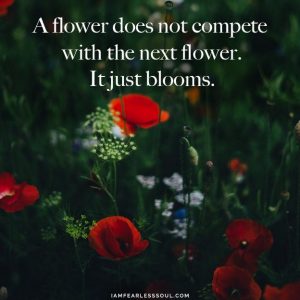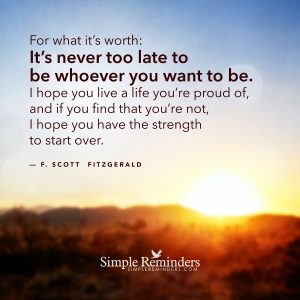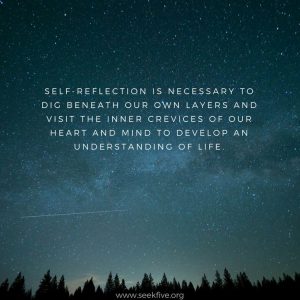1-4-2020 by Lisa Melonçon
 The last two years I have written a “wishing you” blog, and I found that they were quite a good way for me to orient myself to the new year. Even though academics seem to have a constant stream of reflective moments, the new year brings with it, well, the new year, and a new term.
The last two years I have written a “wishing you” blog, and I found that they were quite a good way for me to orient myself to the new year. Even though academics seem to have a constant stream of reflective moments, the new year brings with it, well, the new year, and a new term.
There’s a comfort in this consistent way of looking back to look forward. So this is why my wish for you this year to invoke re-…
The prefix re- means again or again and again. It is attached to so many useful words that can help us to move into 2020 with a purpose and intent. In reflecting on the past year (both professionally and personally), I realized that sometimes we have to build new habits, new ways of thinking, that require us to do things again. In part, thinking of terms re- I hope to be more intentional, which feels likes something I can control in light of the world events.
Following are some of the re- words that I am centering in 2020, and I hope that you can be inspired by these and/or create your own:
Reconnect
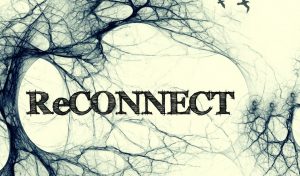 In a job that often requires you to move away from family or friends, the idea of reconnection is an important one. For me it means to be more intentional in reconnecting with those that mean the most to me. Without doubt, I think we could agree that it is the people that make a life so being more intentional in making meaningful connections is important to overall well being. I like reconnect, too, because it also suggests that we can reconnect to parts of our selves or to habits to things that bring us joy. It’s a flexible re word that may help to prioritize the people, habits, and things that align with our priorities and purposes.
In a job that often requires you to move away from family or friends, the idea of reconnection is an important one. For me it means to be more intentional in reconnecting with those that mean the most to me. Without doubt, I think we could agree that it is the people that make a life so being more intentional in making meaningful connections is important to overall well being. I like reconnect, too, because it also suggests that we can reconnect to parts of our selves or to habits to things that bring us joy. It’s a flexible re word that may help to prioritize the people, habits, and things that align with our priorities and purposes.
What parts of yourself do you need to reconnect? Is there something that you’ve let lapse that you want to reconnect with? Who do you need to reconnect to?
Rebalance
As I have written a lot about it, balance is something that many of us strive for and often times fail at. In many ways, I do ok with balance. But I do want to focus (ha!) on rebalancing some aspects of my life. If I’m thinking through ways to restore or correct my own balance that would mean ensuring that I have time and activities away from work that are also good for my emotional, mental, and physical health. This rebalancing of the body and mind is part of my goal for the year.
What do you want to rebalance? Where do you need to rebalance your activities? Is there part of your balancing act that needs specific attention?
Refocus
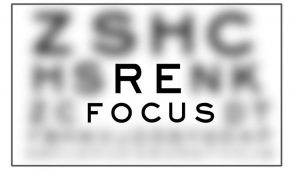 It is not uncommon for us to get caught up in the day-to-day minutia of our jobs that we lose track of the bigger picture. The beginning of the year is a good time to refocus and to think through what we really or need in our lives. Focus is also something many academics write about when they struggling to accomplish tasks and goals. I am totally not immune to this problem so for me I want to refocus on those projects that mean the most to me–to refocus on aligning my job and where I spend my time with my own values and priorities.
It is not uncommon for us to get caught up in the day-to-day minutia of our jobs that we lose track of the bigger picture. The beginning of the year is a good time to refocus and to think through what we really or need in our lives. Focus is also something many academics write about when they struggling to accomplish tasks and goals. I am totally not immune to this problem so for me I want to refocus on those projects that mean the most to me–to refocus on aligning my job and where I spend my time with my own values and priorities.
Are you focused on those things that are a priority for you? Is your time being used on those things that help you in your job and bring joy in your life? Are there other things you need to focus us? If so, what will it take to focus on them?
Revision
 While revision is a common practice in the writing portion of our lives, I would like to encourage us all to think of it not only in terms of the work, the writing, we do, but in consideration of all of our work lives. Here, for me, I am thinking of revising my work schedule to ensure that I can do the rebalancing. I am also considering revising what I am doing in the way of work, that is, thinking through the things I have committed to and determining if those need to be revised or to simply let things go.
While revision is a common practice in the writing portion of our lives, I would like to encourage us all to think of it not only in terms of the work, the writing, we do, but in consideration of all of our work lives. Here, for me, I am thinking of revising my work schedule to ensure that I can do the rebalancing. I am also considering revising what I am doing in the way of work, that is, thinking through the things I have committed to and determining if those need to be revised or to simply let things go.
Does your purpose and goals need to be re-visioned? Are you doing what you really want to be doing? Are your values in line with your work priorities? Does your own schedule need a revision?
Reclaim
This one may call to mind the great Maxine Waters and the meme of 2017 when she invoked the procedural line of “reclaiming my time.” I was struck recently by the need to reclaim some of my own time, but as importantly, to reclaim activities and orientations that have gotten lost or skewed. It’s not uncommon to let day-to-day struggles or the larger world issues take up way too much energy when instead a reclamation can actually help you feel more in line with yourself and your life. My goal here is reclaim a commitment to some things that are important and vital, but I have lost track of because of life distractions.
What may you do with time you reclaim? What parts of yourself need to be reclaimed? (e.g., those hobbies you used to do). What spaces can you reclaim for playing, making, and thinking? What orientations and purposes do you want to reclaim?
Outside of the re- words I’ve chosen, there are so many others that you may want to think about in relation to your own planning for the new term and new year: rejoice, rejuvenate, restart, restore, regenerate, retrace, retry, review, remove, recall, or reconsider.
All of the re- words encourage us to go back again, which then means that going forward is next.
Wishing you health, peace, joy, and just your everything in 2020.
Bonne chance and bonne année!!



